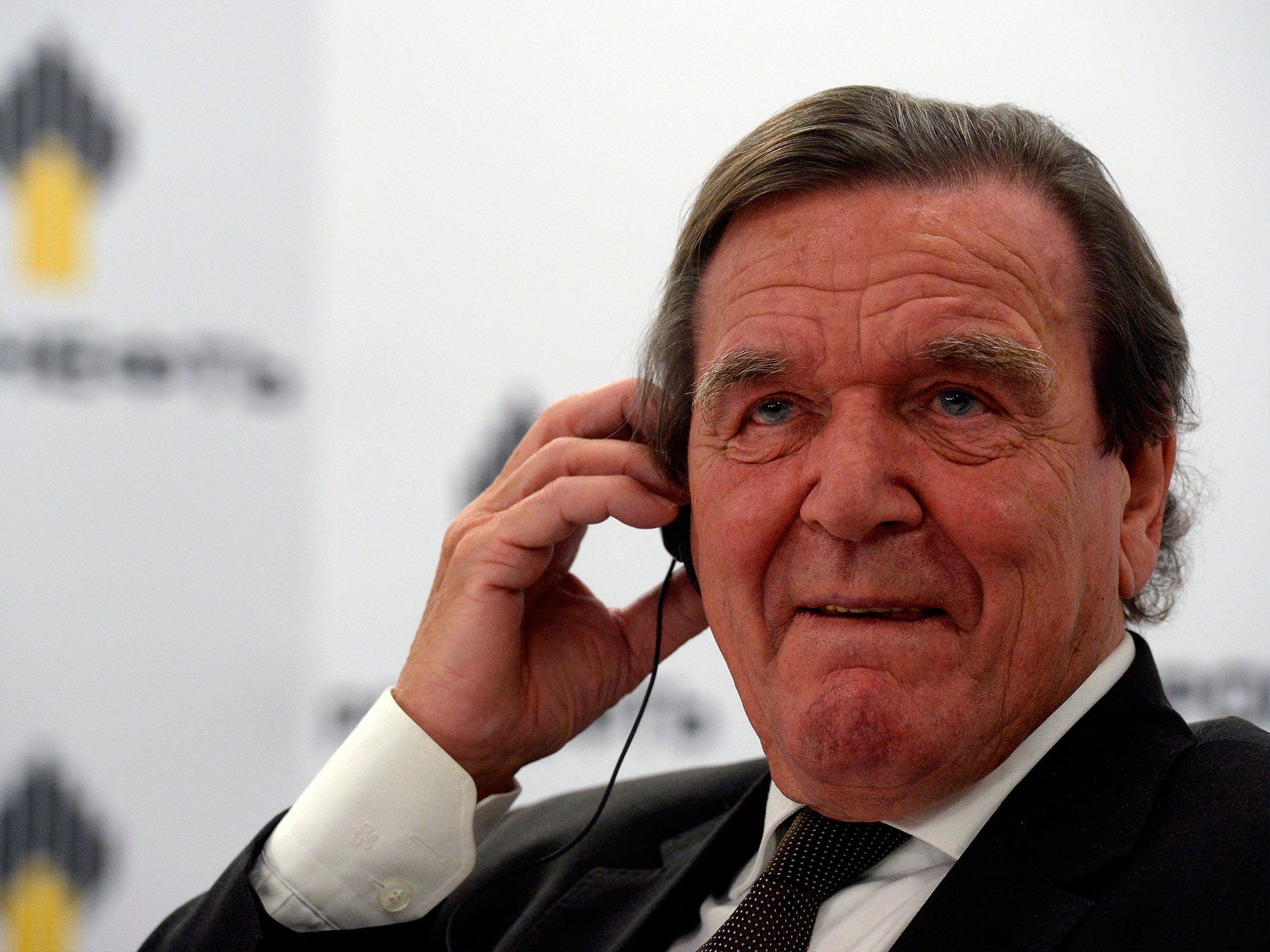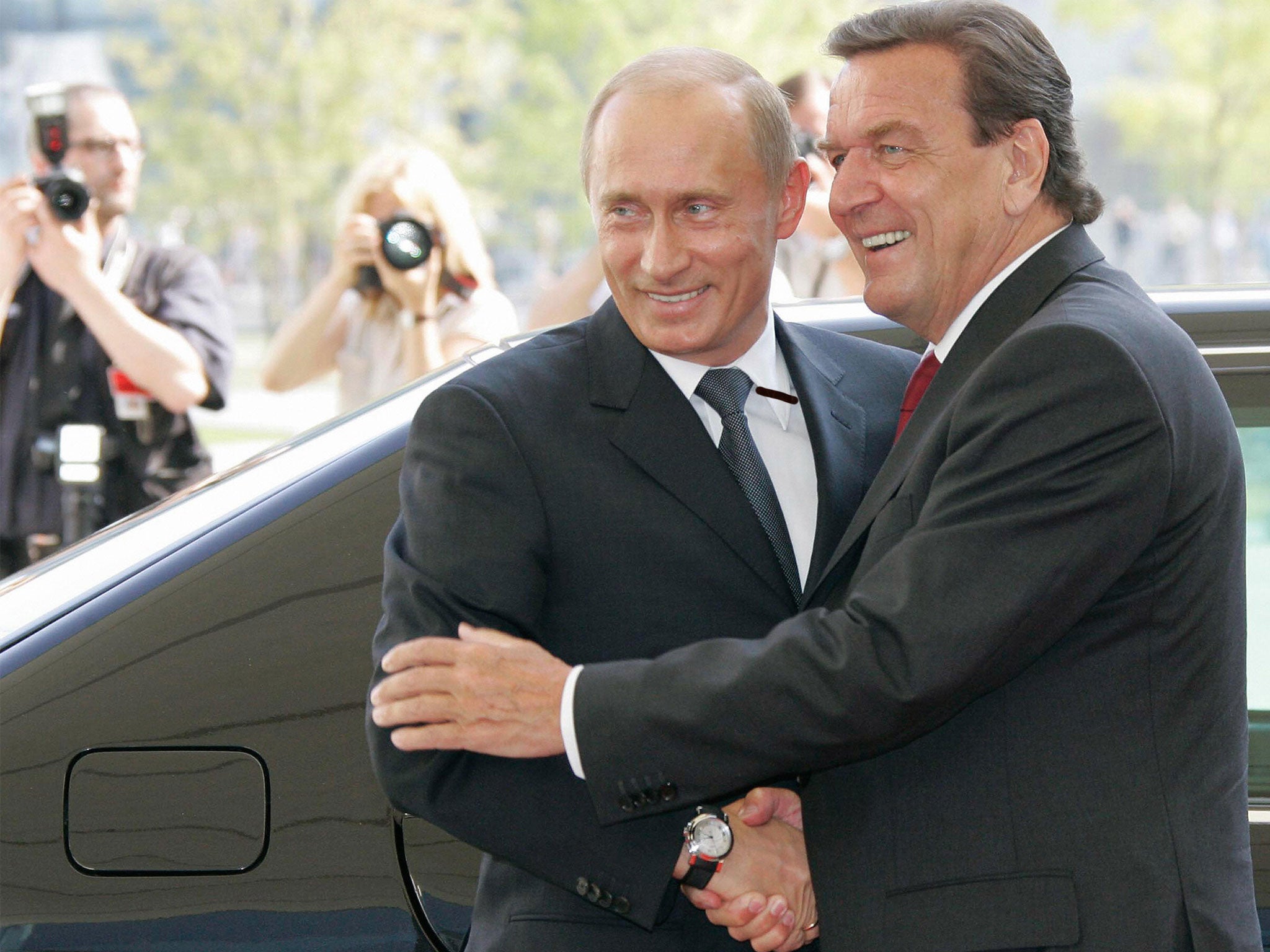US wants a 'weak' Russia, says former German chancellor Gerhard Schroeder
Ex-leader of the Social Democrat Party is chairman of Russian state-controlled oil giant Rosneft

Your support helps us to tell the story
From reproductive rights to climate change to Big Tech, The Independent is on the ground when the story is developing. Whether it's investigating the financials of Elon Musk's pro-Trump PAC or producing our latest documentary, 'The A Word', which shines a light on the American women fighting for reproductive rights, we know how important it is to parse out the facts from the messaging.
At such a critical moment in US history, we need reporters on the ground. Your donation allows us to keep sending journalists to speak to both sides of the story.
The Independent is trusted by Americans across the entire political spectrum. And unlike many other quality news outlets, we choose not to lock Americans out of our reporting and analysis with paywalls. We believe quality journalism should be available to everyone, paid for by those who can afford it.
Your support makes all the difference.The US is pushing for a weaker Russia while Europe is betting on a resurgent neighbour to the east to boost trade, Germany’s former chancellor has said.
Gerhard Schroeder suggested a fault line had emerged among Western allies, with Washington seeking to “isolate Russia” while its allies on the continent, including Germany, hoped to see the country prosper.
Mr Schroeder, who served as chancellor between 1998 and 2005, called for an end to sanctions and warned against attempts to “destabilise Russia”.
Speaking at the Eurasian Economic Forum in Verona, the former head of state said: “The US believes that it is possible to isolate Russia from the political point of view, and this is dangerous from the economic point of view.”
Mr Schroeder, who was appointed chairman of Russia’s state-controlled oil company Rosneft last month, added: “I see that the United States is interested in a weaker Russia, and the interest of Europe and Germany is that Russia will prosper, two reasons: we need a market, especially Germany, we need resources for our industry.”
Jeremy Shapiro, research director at the European Council on Foreign Relations, said it had been the policy of every US administration since the end of the Cold War to seek Russia’s integration into the world economy and global political affairs, “precisely because the idea of an isolated Russia is impossible and the idea of an impoverish Russia is undesirable”.
“The heart of the dispute between the West and Russia is not over Russia’s isolation or integration; it is over the terms of Russia’s integration,” Mr Shapiro, an expert in transatlantic relations, told The Independent.
“Both the US and Germany seek a Russia that plays by the political and economic rules, largely determined by the United States and its partners; Russia seeks a special status for its integration that recognises it as a great power with special rights.”
Mr Schroeder faced a backlash – including from the incumbent German Chancellor, Angela Merkel – after he accepted the job at Rosneft, which is subject to Western sanctions.
Some claimed he was "cashing in" on his former role as chancellor. But Mr Schroeder dismissed the criticism, saying his opponents wanted a “new Cold War”.
“Imagine if I had been proposed not for a Rosneft board position but for Exxon in America,” he said. “Nobody would ask my true motives.”
He added: “It is the largest oil company in the world, with important links to Germany. It is not the long arm of the Kremlin. They are the majority shareholder, but BP is a shareholder - not a small shop. Qatar is a shareholder.”
Rosneft also has informal ties to the Kremlin via its CEO, Igor Sechin, who is a close associate of the Russian President and who has earned the title “grey cardinal” on account of the influence he enjoys in Moscow.

As chancellor, Mr Schroeder backed plans for a pipeline between Germany and Russia. He has maintained links to another Russian energy giant, Gazprom, since leaving office and is a vocal supporter of Vladimir Putin, having once called the Russian President a “flawless democrat”.
“Compared to Mr Trump, Mr Putin is a very rational man, you have to admit,” he said.
Join our commenting forum
Join thought-provoking conversations, follow other Independent readers and see their replies
Comments